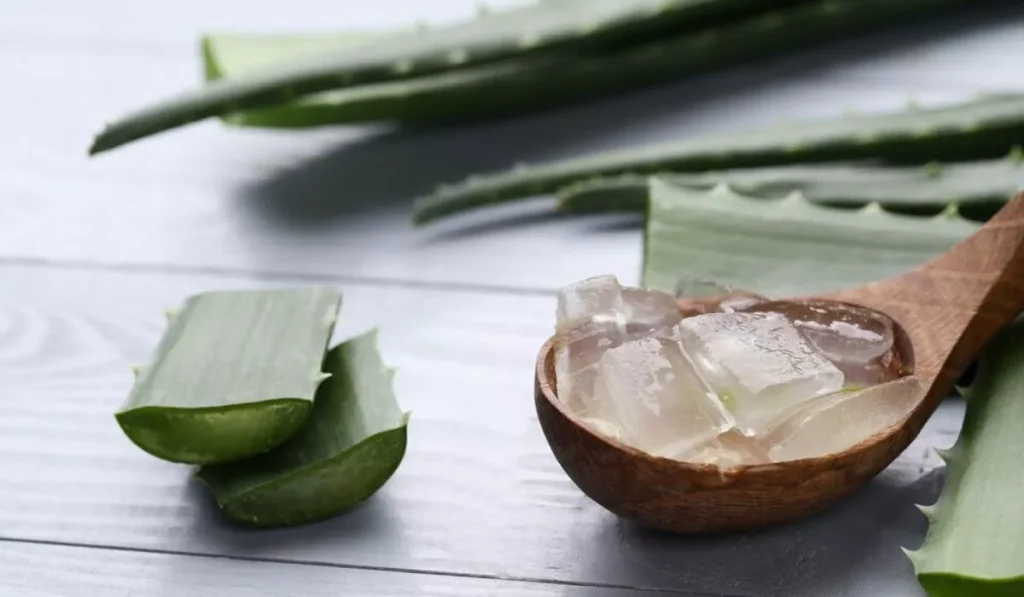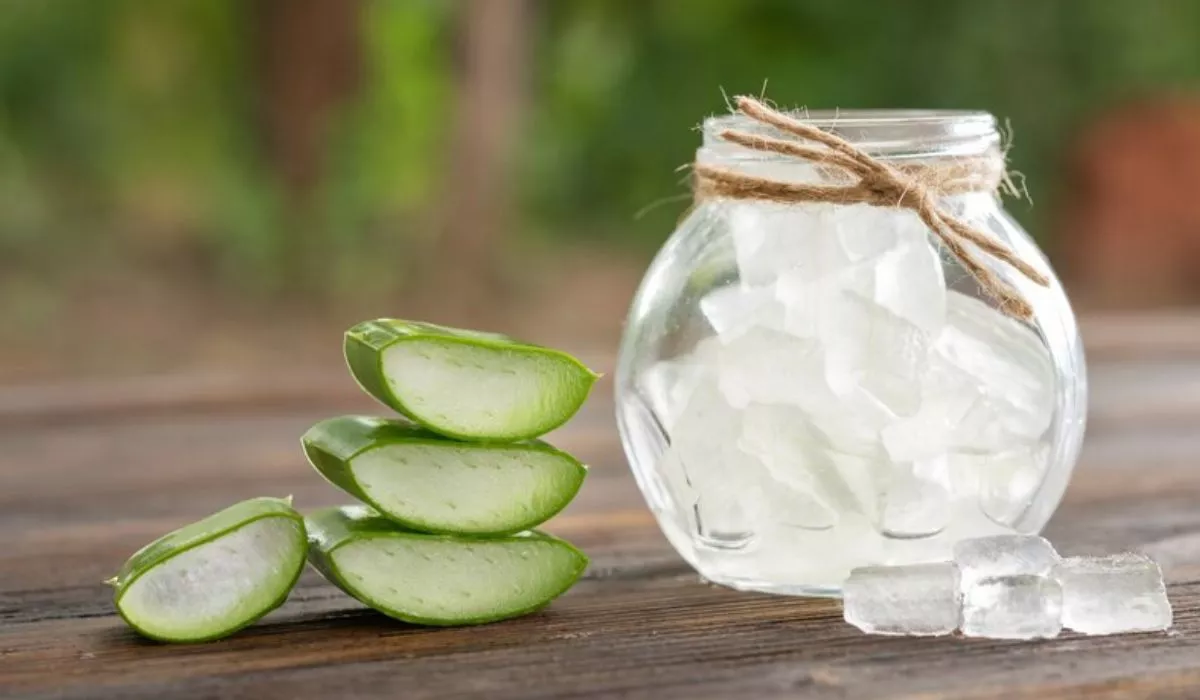If skin problems are the villains, then Aloe vera is the protagonist who can fight and protect you from them. It has been in use for centuries to treat various skin issues such as burns, acne, rashes, etc. That’s why it is also called the “plant of immortality.”
However, there remains a doubt that it is comedogenic or non-comedogenic. Comedogenic ingredients can block our skin pores and the flow of sebum to cause white or blackheads.
So, let’s delve into this article, where we will find out the answer by understanding aloe vera and its benefits. Plus, we look into some comedogenic and non-comedogenic ingredients as a bonus for you.
Breaking Down Aloe Vera
Aloe vera is a succulent plant that belongs to arid regions of South Africa. The plant produces a long tail and pointed, thick leaves with thorns. As these plants are inhabited by dry and arid regions, 90 % of the plant is water. Thus, it cannot be a comedogenic ingredient that can clog pores.

However, the thing that makes this plant worth the name “plant of immortality” is the gel that the leaves provide. This gel is rich in antioxidants and minerals and has anti-inflammatory properties, which makes it a superb natural ingredient to treat skin problems.
Why To Choose Aloe Vera?
- Aloe vera contains vitamins A, C, and E, which are great for healthy skin.
- It also neutralizes free radicals because it has folic acid, Vitamin B12, and choline.
- Pure Aloe gel can help heal mild burns, rashes, and fungal infections.
- 90% of the plant is water; thus, its gel can act as a very good moisturizer and can soothe dry skin.
- Aloe vera has inflammatory properties that can reduce swelling, redness, and inflammation on the skin.
- It can stimulate collagen production, improve the elasticity, and reduce wrinkles.
- Regular use of Aloe vera can keep your skin hydrated and give you a radiant and youthful look.
Non-comedogenic Ingredients That Can Be Helpful
If you have oily skin and you often suffer from skin issues such as white or blackheads, then you must avoid comedogenic ingredients. Thus, other than Aloe vera, here are some non-comedogenic ingredients:
- Grapeseed Oils, which have a 1-2 rating of comedogenic, are healthy for dry, aging, and sensitive skin.
- Cocoa Butter can help moisture and soothe skin without clogging pores.
- Sunflower oil, with a good amount of Oleic acid, is a good option for skin issues like acne and eczema.
- The peach seed oil also has a comedogenic rating of 2 out of 5; hence, there is a lower chance it can clog pores.
- Neem Oil is a superb non-comedogenic ingredient with its anti-bacterial and anti-inflammatory properties.
- Argan Oil has a comedogenic rating of 0 out of 5; hence, it is unlikely to clog pores.
Some Comedogenic Ingredients You Should Know
As you have doubts about whether aloe vera is comedogenic or not, you might also get confused with other ingredients. Besides, every individual has a skin type; hence, comedogenic ingredients can be beneficial if they have dry and rough skin. So, here are some comedogenic ingredients you should know.
- Shea Butter is dense and considered heavy; thus, it can considerably clog pores.
- Wild Rose Oil
- Coconut Oil is also high in comedogenic substances and can clog pores.
- Sesame Oil
- Olive Oil can be considered a moderate comedogenic for clogging pores as its rating stands from 2 out of 5.
Be Cautious Of Alternated Aloe Vera
Aloe vera is a non-comedogenic ingredient; however, industrial treatment and alternation with chemicals can make it comedogenic. So, make sure to choose pure Aloe vera gel that is free of any added substances.
Besides, when you buy aloe vera products for your skin, read the ingredients mentioned on the packaging. You can get the information and of ingredients to ensure that the product is suitable for your skin or not.
Wrap Up
Whether comedogenic or non-comedogenic, ingredients can vary according to the skin type of individuals. Ingredients that are high in comedogenic are likely to clog pores and cause skin problems.
Thus, they are not preferable to individuals who have oily Skin. In the case of Aloe vera, which contains 90% of water and thus is unlikely to clog pores. Thus, we can conclude that Aloe vera is non-comedogenic and can be perfect for skin.

